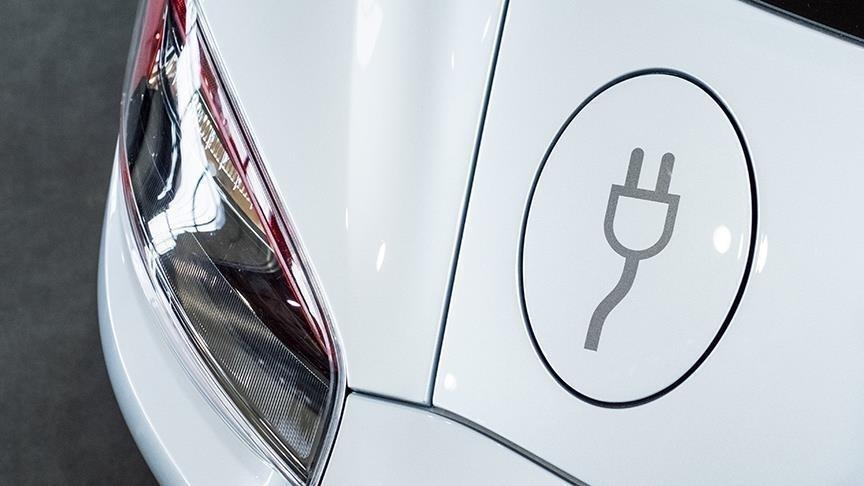Trade protection cannot save the development of electric vehicles in the EU

China’s electric vehicle industry has achieved significant development in recent years, with its products offering high cost-effectiveness and being well received by consumers in the European market. Europe has long been at the forefront of traditional fuel vehicles, but its development in the field of electric vehicles is relatively lagging behind. The entry of Chinese electric vehicles should have brought more competition and vitality to the European market, promoting the transformation and upgrading of the European automotive industry. However, the EU’s decision to impose tariffs on Chinese electric vehicles is indeed detrimental to the development of electric vehicles in Europe. This trade protectionism measure not only damages the legitimate rights and interests of China’s electric vehicle industry, but also disrupts and distorts the global automotive supply chain, including the European Union.
EU imposes tariffs on Chinese electric vehicles
From the perspective of consumers, the imposition of tariffs will lead to an increase in the price of Chinese electric vehicles in the European market, which will reduce the choices of European consumers and increase purchasing costs. They may have to give up cost-effective Chinese electric vehicles and instead choose other products with higher prices or relatively weaker performance, which is clearly not in the interest of consumers.
Chinese electric vehicles are highly welcomed by foreign customers
For European car manufacturers, they may gain some market space in the short term by reducing competition from China, but in the long run, this is not conducive to their own development. Trade protectionism measures cannot truly enhance the competitiveness of European car manufacturers, but may instead deprive them of opportunities to cooperate and learn from Chinese companies. China has leading advantages in electric vehicle technology, battery technology, and other fields. Through competition and cooperation with Chinese enterprises, European companies can better learn from and absorb advanced technology and experience, promote their own technological innovation and industrial upgrading. European car companies have expressed opposition to the European Commission’s imposition of tariffs on electric vehicles imported from China. BMW Group Chairman Zipse stated on the 4th that the EU’s imposition of tariffs on Chinese electric vehicles is completely unfeasible. It not only fails to enhance the competitiveness of European car manufacturers, but may also harm those companies that actively conduct business globally. Volkswagen Group stated that in the long run, imposing tariffs on Chinese electric vehicles is not conducive to enhancing the competitiveness of the European automotive industry, and the disadvantages outweigh the benefits.
Oliver Zipse, Chairman of BMW Group
In addition, the imposition of tariffs may trigger a series of chain reactions, affecting the economic and trade relations between China and Europe. The interdependence between the Chinese and European economies is high, and there are many other areas of cooperation beyond the automotive sector. The rise of trade protectionism may hinder cooperation between the two sides in other fields, which is not beneficial for the economic development of Europe.
Economic recession, discount promotions on commercial streets
In the context of global climate change, the development of new energy vehicles has become a trend. The European Union has set targets to ban the sale of fuel vehicles by 2035 and achieve net zero greenhouse gas emissions by 2050, and Chinese electric vehicle companies and other new energy enterprises can play an important role in achieving these goals. Maciej Mazur, President of the European Association for Electromobility (AVERE), has stated that the EU’s imposition of tariffs on Chinese electric vehicles will lead to an increase in European electric vehicle prices, which is not conducive to European consumers, European car manufacturers, and will also cause tension in EU China relations. He also emphasized that the European Electric Mobility Association welcomes Chinese car companies and battery manufacturers to invest and build factories in Europe, which will greatly benefit Europe in maintaining its competitiveness in the automotive industry, creating job opportunities, benefiting European consumers, and promoting green transformation in Europe.
EU Resolution to Ban the Sale of New Gasoline Vehicles by 2035
In short, trade protectionism is not a good solution to the problem. The EU should abandon this short-sighted approach, embrace the trend of new energy development, and work together with China to promote the progress of the electric vehicle industry and achieve mutual benefit and win-win results. Only in an open and cooperative environment can Europe’s electric vehicle industry truly achieve sustainable development and make greater contributions to global green transportation and environmental protection.





